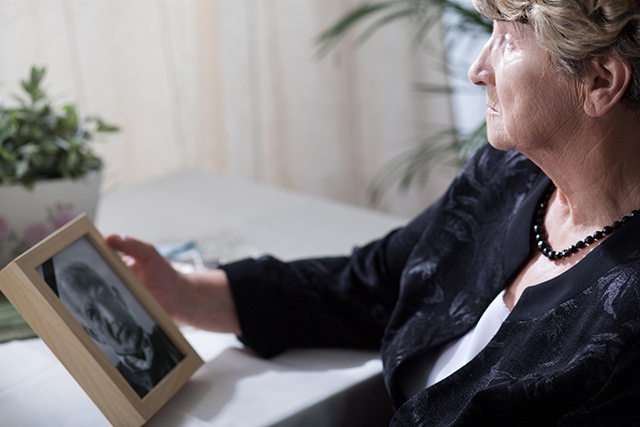The Surviving Spouse
Posted by Improving Lives Counseling | Articles

You followed all the rules, obeyed the ten commandments, did unto others as you would have them do unto you, remained fruitful, faithful, and changed the bed linens every Sunday night. Life was safe, sound, stable, and controlled when your lifelong partner slipped away. Relaxing on the veranda of your dream house, watching grandchildren play, you wonder, “why me, why now, why does no one seems to understand?” He was the love of your life; she was your best friend and soulmate. You liked one another, shared dreams, and ambitions – for better or worse secrets were revealed, through sickness and health hardships overcome. Whether it happens suddenly or following a lengthy illness, there are few things in life more crushing than losing a spouse. Psychology Today reports: “Numerous research studies have demonstrated, spousal bereavement is a major source of life stress that often leaves people vulnerable to later problems, including: depression, chronic stress, and reduced life expectancy. While the grief process usually takes weeks or months to subside, a small minority of bereaved persons experience symptoms for much longer. In many cases, these symptoms can resemble other psychiatric conditions, such as major depressive disorder.” Longtime relationships with a deceased spouse don’t end when they die. The counselors and therapists of Improving Lives Counseling Services offer bereavement and end-of-life counseling.
More than 14,000,000 people in the United States are widowed. About 40 percent of women and 13 percent of men 65 and older are widowed. Despite the known and acknowledged benefits of bereavement therapy, years of stigma prevent the elderly from seeking bereavement counseling. For years it was believed grief came in stages: anger, denial, depression, and acceptance. Recent studies have found these vary from person to person. Toni Bisconti of the University of Akron found, “vast fluctuations occurred from one day to the next. A widow might feel anxious and blue one day, only to feel lighthearted and cheerful the next.” Confusion, anxiety, and stress easily accompany these day-to-day emotions – guilt over feeling happy, confusion as to why they can’t move on.
Psychological and emotional loss changes lives. Struggling with unhappiness, loneliness, and isolation can lead to withdrawal, behavior disorders, and acute illnesses. Arthritis, diabetes, heart disease, stroke, isolation, and immobility can result from a failure to seek help. If a spouse was a best or only friend, a travel companion, or caregiver, the loss can be even greater. Many 19th and 20th century widows experienced financial and economic challenges. In many households, the men handled the money and the woman the home, child-rearing, and meal preparation. For these widows and widowers, losing a spouse meant learning new tasks and performing new chores. The 21st century’s increase in Senior Centers, educational and health and wellness programs, and access to the internet has made adjusting physically and coping financially easier, however, psychologically and emotionally the challenges remain.
The stigma surrounding mental health therapy remains a barrier in the senior and elderly population. Immediate and extended family members, health-care providers, and care-givers can help. Every senior responds differently. Shock, periods of grief, and loss are normal. Recognizing psychological and emotional changes, extended periods of isolation, physical illness, and changes in behavior are important. Dying from loneliness, isolation, dehydration, and starvation due to the death of a spouse has been and can continue being avoided. The counselors and therapists of Improving Lives Counseling Services have the training, knowledge, skills, and tools needed to treat and support the surviving spouse. Ignore the stigma, let us help. Live the life you were meant to live. Call us to learn more.
